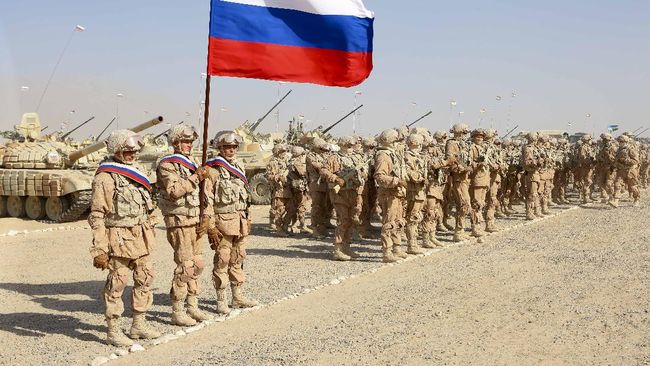Although some data have suggested that the Omicron variant may escape neutralizing antibodies to some extent, other research indicates that giving a third dose of booster vaccine can provide protection, no matter how low, which would protect people against the severe illness of COVID-19.
By Mick Bailey
Professor of Comparative Immunology, University of Bristol
Nicholas John Timpson
Professor of Genetic Epidemiology, University of Bristol
Mexico City, December 18 (The Conversation) .- The Omicron variant has many mutations and spreads rapidly, so people want to know if the immunity that grants the vaccination or a previous infection will be enough to protect them against the infection or the development of a serious illness.
If previous immunity provides sufficient protection, precautionary measures to stop the spread from Omicron, together with vaccination and population reinforcement should avoid intolerable pressure on health systems. But if not, it is inevitable that social restrictions as the variant spreads around the world and potentially replaces the Delta variant, which is currently the dominant one.
The first studies – all of them are still preprints, so they have yet to be formally reviewed by other scientists – suggest that the Omicron it is handled worse by existing immunity. But research also suggests that managing a third dose of booster vaccine can provide protection. So bad news is not as bad as it could be, but good news should also be treated with caution. Here’s why.
IMMUNITY IS MORE THAN ANTIBODIES
Inevitably, the first reports have focused on the most rapidly accessible data, which is the amount of antibodies that people have in their blood and that they are able to neutralize the new variant.
Overall, the data consistently suggest that the Omicron it can escape these neutralizing antibodies to some extent: the reduction in neutralization in twice vaccinated people is between 10 and 20 times and 40 times compared to Delta. That said, in people who had received two vaccines and who had also been infected, the Omicron neutralization level he was older.
This may seem alarming. But it is not the whole story. In previous studies that have looked at older forms of the virus, levels of neutralizing antibodies have correlated well with levels of protection: increased neutralizing activity equates to better protection.
But lower levels of neutralizing antibodies do not necessarily mean that people are fully exposed. Previous studies have also found that many people with low antibody levels appear to be sufficiently protected, especially against severe disease, even with newer variants like Delta. The same may be true for the Omicron.
This is most likely because the neutralizing antibodies that attack and kill the virus are only part of the immune response. There are also binding antibodies, which attach to the virus or infected cells to signal them to other immune cells for destruction, and memory T cells and B cells, which can attack the virus directly and produce more antibodies to fight it.
Even in the initial absence of antibodies that can neutralize the virus, these mechanisms can provide a level of protection against infection or symptomatic disease. This could be enough to reduce the likelihood that Omicron cause una serious illness and limit its impact on health systems.
GOOD NEWS?
Two of the recent reports also strongly suggest that a third booster dose of a vaccine dramatically increases levels of neutralizing antibodies against the generalized Delta variant and that this would also increase the neutralization of the variant Omicron.
One of them (a Pfizer press release) suggests that a boost can provide quite a marked increase in Omicron neutralization, although this only included a summary of the results and not the full data set.
A more detailed examination of the data available in these studies reveals that the reduction of neutralization Omicron’s can be extremely variable (so it would be helpful to see Pfizer’s results in their entirety). While some vaccinated or previously infected people are good at neutralize omicron, others hardly have neutralizing antibodieseven after a booster dose.
So are these people likely to still be protected against infection or serious illness? It is difficult to say. As already mentioned, we do not know to what extent the other mechanisms of the immune system can provide protection.
However, we do know that these other immune mechanisms target different parts of the body. coronavirus to neutralize antibodies. And while the part of the virus that neutralizing antibodies target – the spicule protein– is heavily mutated in Omicron, the parts that these other mechanisms focus on are not affected as much.
We can expect that people with low levels of neutralizing antibodies, even after a boost, will be protected by these other immune defenses that remain largely unaffected. However, this is not a fact, and we need more studies to measure protection in real life.
OPTIMISM MORE THAN TRUST
In general, then, what we know so far is that the vaccination or previous infection should provide some protection against Omicron variant, and that for most people protection should be increased with a dose of booster vaccine.
But the crucial message from these early studies is that we still need much more information to assess the national and global impact of the rapid spread of this new variant. We need more and larger studies on the neutralizing antibodies after different combinations of vaccines and previous infections.
We also need studies on the ability of other protective mechanisms (T cells, binding antibodies) to control infections and diseases caused by Omicron. And we need to know to what extent these mechanisms are also enhanced with a third dose of vaccine.
Above all, we need large, real-time studies of the levels of infection and disease attributable to Ómicron in order to make quick and rational public health decisions. Research groups around the world are tackling all of these areas and, in the near future, we can hope that their reports will clarify the situation.


